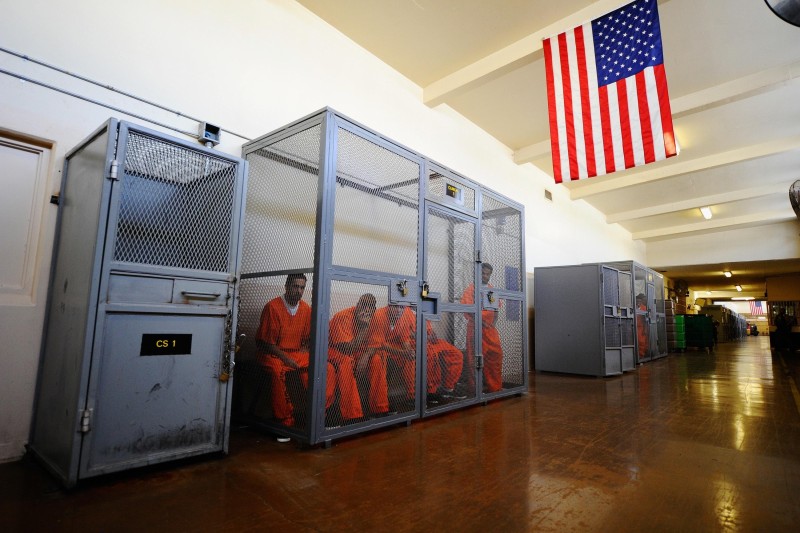The majority of this population is not currently incarcerated. In fact, more than two-thirds of people in the country who can’t vote because of felony convictions are not behind bars at all, according to the report. Most live among the general population but can’t vote because they’re in states that disenfranchise people who are on parole or probation or, in some cases, even those who have completed their sentences altogether.
“It’s highly unusual around the globe to disenfranchise people who are not incarcerated,” said Christopher Uggen, a professor of law and sociology at the University of Minnesota, who co-authored the report. He noted that doing so has an outsize impact on women convicted of felonies, roughly 90% of whom serve their sentences outside of prison.
The report also found that well over half of the U.S. disenfranchised population live in just a handful of Southern states, including Florida, Texas, Tennessee, Virginia, Mississippi and Alabama, where restoration of voting rights, even after the full completion of a sentence, remains conditional.
“There’s 10 states now left that do that,” Uggen said, of places where convicted felons often continue to be disenfranchised after completing their sentences.
Mouse over the map below to see felon disenfranchisement rates by state.
These state-by-state prohibitions, much like the criminal justice system overall, disproportionately impact Black people. Nationwide, one in 22 Black people of voting age is currently disenfranchised, a rate more than triple that of the non-Black voting-age population, the report found.
In 15 states, 5% or more of the Black adult population is banned from voting due to a felony conviction.
“There is a clear racist white supremacist legacy certainly in many states that pervades here,” Uggen said.
Conversely, Maine and Vermont, both overwhelmingly white, are the only two states without any felon voting restrictions; even people currently incarcerated in state prison can vote.
Proponents of voter disenfranchisement laws typically argue that those who commit serious offenses against the state and its citizens lack the appropriate judgment needed to vote and say their past transgressions should be disqualifying. But Uggen calls those arguments “thin.”
“I think there is a strong case from both a liberal and a conservative perspective that the state should not be restricting the right to vote and that moving toward a more inclusive democracy is in all of our interests,” he said.
In recent years, however, a spate of sentencing reforms in states throughout the country has led to a major increase in the number of formerly incarcerated people who can now vote: Since 2016, when a whopping 6 million people were disenfranchised, more than 2 million have had their voting rights restored, according to Sentencing Project records.

